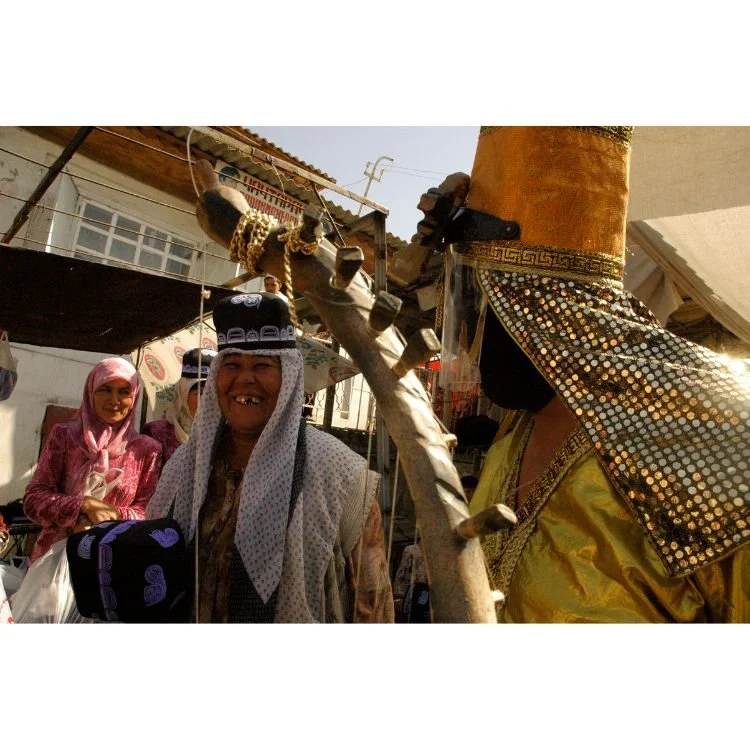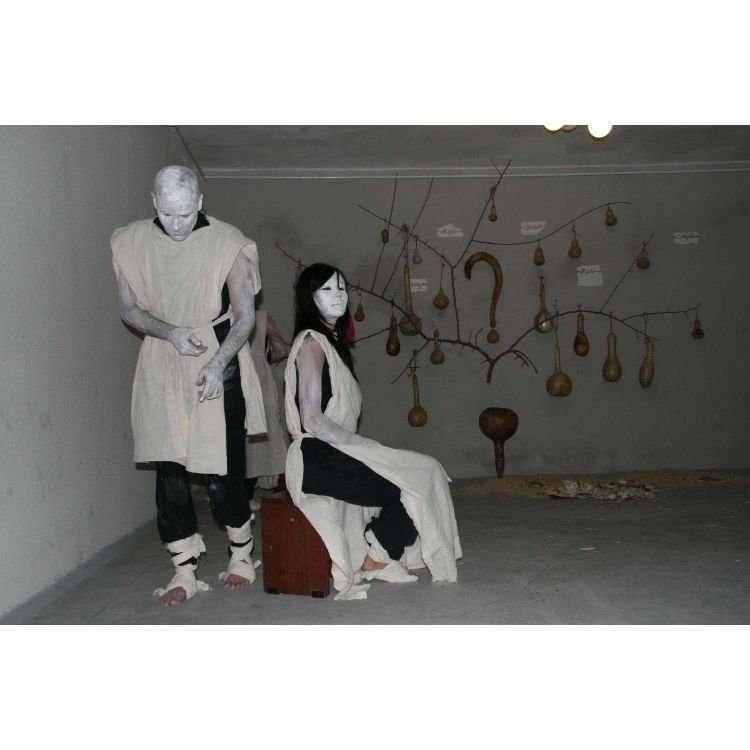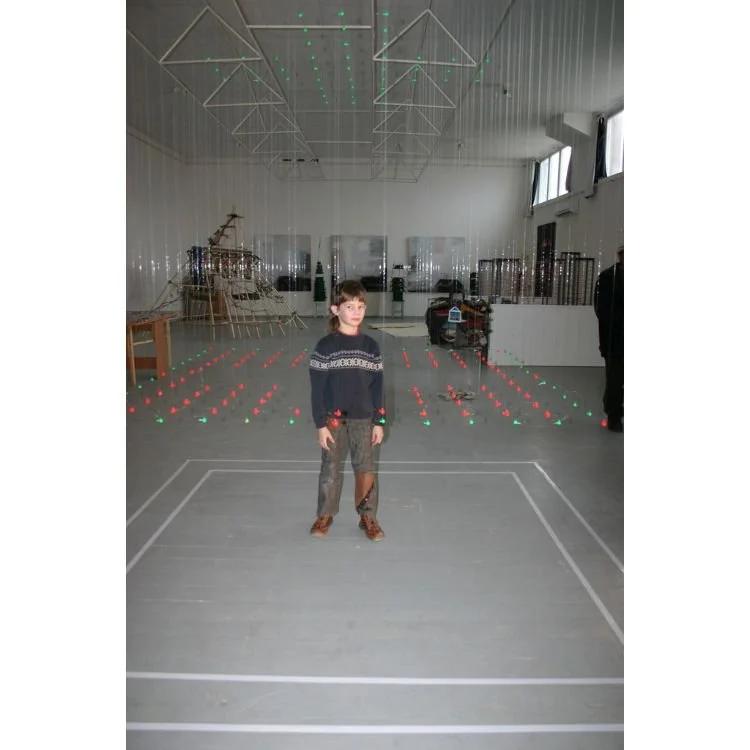Transit-South Pole
(2006-2007)
The Transit-South Pole project is a critical platform for fostering cultural exchange and dialogue between Central Asia and the international art community. Its central aim is to examine the sociocultural issues faced by communities in transit regions, offering a space where contemporary artists can engage with the complex realities of migration and displacement. By gathering artists who have closely explored the living conditions of societies in transition countries, the project provides insight into Central Asia's diverse, evolving landscapes.
The initiative began with a symposium in Osh, bringing together artists, cultural representatives, and experts from a variety of creative sectors to discuss and analyze the challenges faced by communities caught in the flux of migration. These challenges are especially pronounced in Central Asia’s high mountainous regions, where centuries of cultural and religious convergence have shaped a multifaceted social environment. The exhibition, held at the Bishkek Art Center, brought together works that reflect the lived experiences of individuals and communities enduring the pressures of transience. Transit-South Pole highlights several urgent social issues stemming from migration, including unemployment, socio-economic instability, depopulation of rural areas, criminality, child labor, and human trafficking—issues that are intricately linked to the movement of populations. The project foregrounds these concerns by exploring their impact on the affected individuals and communities. In doing so, it addresses the psychosocial effects of migration, particularly the difficulties of adapting to new environments and the sense of dislocation that migrants often experience. In particular, the exhibition reflects on the search for social identity among youth in transition. The shift from rural to urban living, often compounded by a lack of economic opportunity, fosters a sense of marginalization that is keenly felt among the younger generation. The project’s emphasis on demarginalization reflects an ongoing struggle for belonging, self-determination, and empowerment in societies where traditional structures are rapidly evolving.
By situating these issues within the broader context of Central Asian culture, Transit-South Pole opens a conversation on the global scale of migration while paying close attention to the unique cultural, economic, and political factors that shape the experience of Central Asian communities.
This cross-cultural dialogue reflects on how art can deepen understanding of complex social realities, foster empathy across borders, critique the forces driving migration, and explore the resilience and adaptability of individuals amidst profound social change.
2007 Transit-South Pole
Exhibition at Bishkek Art Center
Curator: Shaarbek Amankul
Participants:Batyr Djaliev (KG), Asaken Beishenov (KG), Mamat Kamchybekov (KG), Almas Samidinov (KG), Avas Momunkulov (KG), Suiun Alibaev (KG), Janarbek Amankulov (KG), Asel Nasbekova (KG), Konstantin Razdorsky (KG), Moldokul Narymbetov (KZ), Kanat Ibragimov (KZ), Emma Usmanova (KZ), Surayo Tuichieva (TJ), Alisher Khamidov (UZ), Irina Batova (UZ), Elo Liiv (EE), Margaret Morton (US), Stefan Eins (US), Vlado Franjevic (HR-LI), Wjosna Baranovski (PO).
2006 Transit-South Pole
Symposium and exhibition at Gallery of Artist Union, Osh
Curator: Shaarbek Amankul
Participants:Batyr Djaliev (KG), Asaken Beishenov (KG), Mamat Kamchybekov (KG), Almas Samidinov (KG), Janarbek Amankulov (KG), Asel Nasbekova (KG), Avas Momunkulov (KG), Suiun Alibaev (KG), Konstantin Razdorsky (KG), Moldokul Narymbetov (KZ), Kanat Ibragimov (KZ), Emma Usmanova (KZ), Surayo Tuichieva (TJ), Alisher Khamidov (UZ), Irina Batova (UZ), Margaret Morton (US), Stefan Eins (US),), Wjosna Baranovski (PO).
Performance: Linda & Glenn Brown (US), Maksat Kulmatova (KG), Gulya Matamarova(KG), Elena Komanova (KG), Gulya Israilova (KG), Barno Mamajanova (KG), Nadira Jakypova (KG), Gulya Kadyrbaeva (KG), Nurjan Abdyrakhmanova (KG), Akyl Abdraev (KG), Aichurek Asylbekova (KG), Guzel Gilmutdinova (KG), Yakhie Yakubov (KG).


